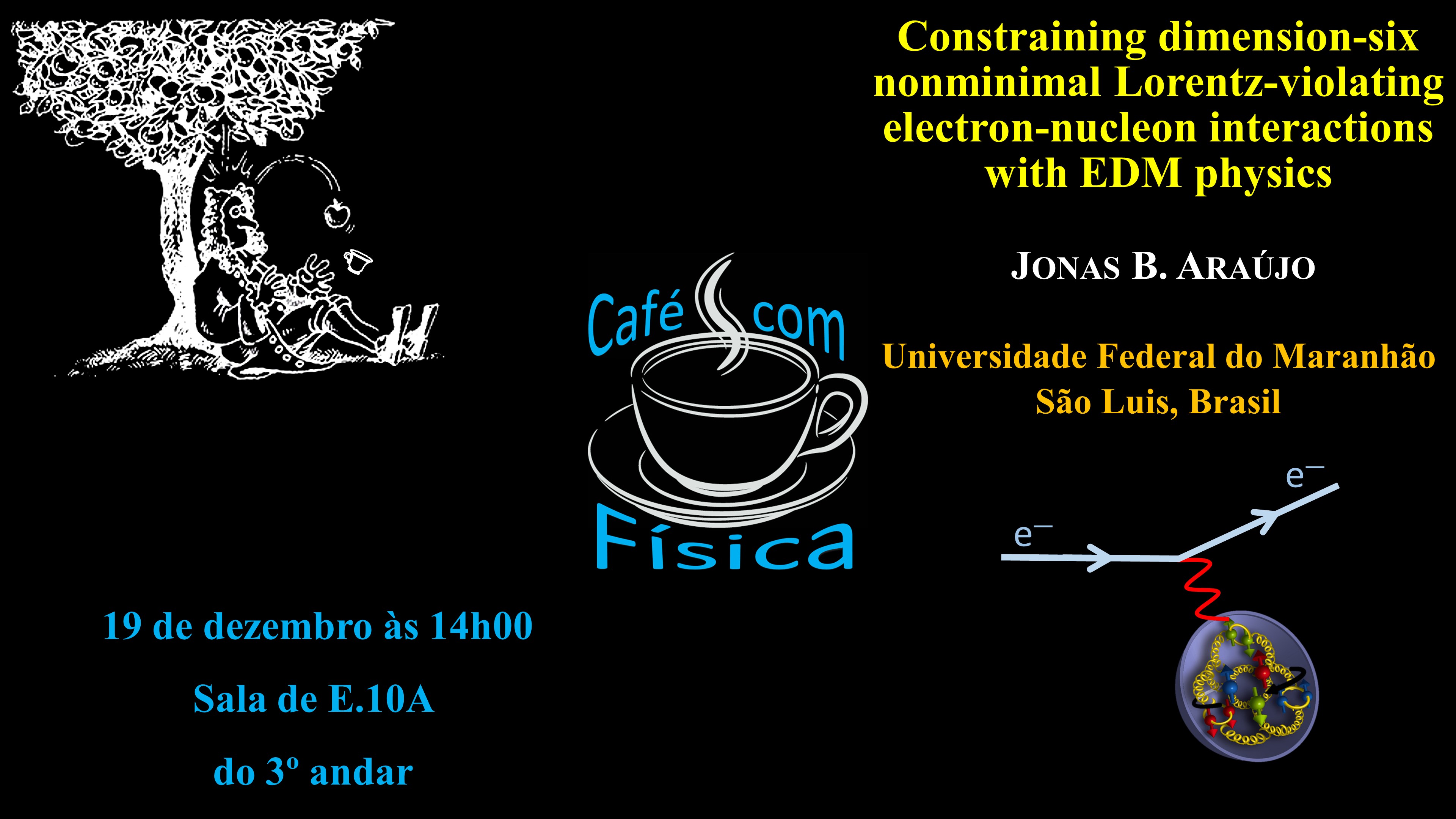Constraining dimension-six nonminimal Lorentz-violating electron-nucleon interactions with EDM physics
by
Sala de Conferências
Departamento de Física

Electric dipole moments (EDMs) are excellent probes for violation of discrete symmetries and of physics beyond the standard model (SM).
EDM terms violate both parity (P) and time reversal (T) symmetries, while preserve charge conjugation (C), if the CPT theorem holds.
This implies EDM interactions violate CP, which constitutes one of the three Sakharov conditions for explaining the matter - anti-matter
asymmetry in the universe. The experiments probe atomic systems, so that, if an atomic EDM were to be detected, it could arise from intrinsic properties of the electrons and/or nucleus, or from P-odd and T-odd electron-nucleon (e-N) couplings. In previous works, we have investigated the first two possibilities (electronic and nuclear EDMs), but in this talk we will go over EDMs arising from P-odd and T-odd electron-nucleon (e-N) couplings.
First the usual scenario will be discussed and we will observe the suppression mechanisms and how these couplings generate observable EDMs.
Afterwards we will study generalized couplings using Lorentz-violating background tensors (of rank ranging from 1 to 4), and isolate the ones that are potentially detectable. Using recent experimental data, we will set bounds of order 3.2 x 10^(-13)GeV^(-2) or 1.6 x 10^(-15)GeV^(-2) on these generalized Lorentz-violating couplings.
Filipe Veloso e Pedro Costa
